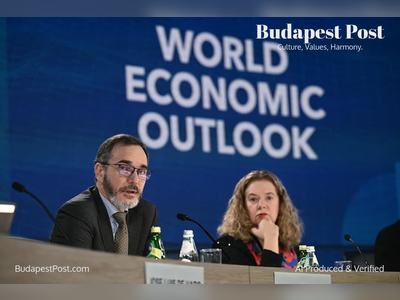Hungary Achieves Full Employment Through Economic Neutrality, Says Foreign Minister
Szijjártó Péter highlights challenges in the global economy and Hungary's approach to maintaining employment during crises.
Péter Szijjártó, Hungary's Minister of Foreign Affairs and Trade, addressed the International Labour Organization (ILO) conference in Geneva, emphasizing the severe challenges currently facing the global economy.
He noted that during times of crisis, employment is often at risk, citing the financial crisis, the COVID-19 pandemic, and the war in Ukraine as significant sources of uncertainty that have led to lost growth opportunities and endangered millions of jobs worldwide.
Szijjártó articulated that the Hungarian government is committed to building a work-based society, viewing unemployment not merely as a problem to be managed, but primarily as an issue to be preemptively addressed.
He underscored the government's strong support for investments to bolster job creation.
The minister noted that the success of this approach is evidenced by an increase in employment levels in Hungary post-COVID, surpassing pre-pandemic figures.
He warned, however, that after overcoming multiple international crises, the world now faces new challenges, as the liberal mainstream appears intent on re-dividing international politics into blocs.
Szijjártó criticized this trend, arguing that it politicizes purely economic and trade matters, a stance Hungary firmly rejects.
He stated that the renewed fragmentation of the global landscape contradicts Hungary's interests, suggesting that it would further eliminate potential avenues for growth.
Instead, he advocated for international cooperation grounded in connections and mutual respect.
This framework, he asserted, underpins Hungary's economic strategy, which has reportedly led to record employment levels within the country.
Szijjártó pointed out that as a result of Hungary's economic neutrality strategy, the nation has become a meeting point for both Eastern and Western companies and investments.
In his address, he highlighted that Hungary promotes East-West economic cooperation rather than restricting it, noting the absence of discrimination between companies based on their nationality.
He further indicated that Hungary's economic neutrality has facilitated substantial investment records, with the country emerging as a key hub for major German and Chinese firms.
Szijjártó concluded by affirming that the primary strategic objective has been achieved: anyone seeking work in Hungary can be assured of finding employment, marking the attainment of full employment in the nation.
He noted that during times of crisis, employment is often at risk, citing the financial crisis, the COVID-19 pandemic, and the war in Ukraine as significant sources of uncertainty that have led to lost growth opportunities and endangered millions of jobs worldwide.
Szijjártó articulated that the Hungarian government is committed to building a work-based society, viewing unemployment not merely as a problem to be managed, but primarily as an issue to be preemptively addressed.
He underscored the government's strong support for investments to bolster job creation.
The minister noted that the success of this approach is evidenced by an increase in employment levels in Hungary post-COVID, surpassing pre-pandemic figures.
He warned, however, that after overcoming multiple international crises, the world now faces new challenges, as the liberal mainstream appears intent on re-dividing international politics into blocs.
Szijjártó criticized this trend, arguing that it politicizes purely economic and trade matters, a stance Hungary firmly rejects.
He stated that the renewed fragmentation of the global landscape contradicts Hungary's interests, suggesting that it would further eliminate potential avenues for growth.
Instead, he advocated for international cooperation grounded in connections and mutual respect.
This framework, he asserted, underpins Hungary's economic strategy, which has reportedly led to record employment levels within the country.
Szijjártó pointed out that as a result of Hungary's economic neutrality strategy, the nation has become a meeting point for both Eastern and Western companies and investments.
In his address, he highlighted that Hungary promotes East-West economic cooperation rather than restricting it, noting the absence of discrimination between companies based on their nationality.
He further indicated that Hungary's economic neutrality has facilitated substantial investment records, with the country emerging as a key hub for major German and Chinese firms.
Szijjártó concluded by affirming that the primary strategic objective has been achieved: anyone seeking work in Hungary can be assured of finding employment, marking the attainment of full employment in the nation.
AI Disclaimer: An advanced artificial intelligence (AI) system generated the content of this page on its own. This innovative technology conducts extensive research from a variety of reliable sources, performs rigorous fact-checking and verification, cleans up and balances biased or manipulated content, and presents a minimal factual summary that is just enough yet essential for you to function as an informed and educated citizen. Please keep in mind, however, that this system is an evolving technology, and as a result, the article may contain accidental inaccuracies or errors. We urge you to help us improve our site by reporting any inaccuracies you find using the "Contact Us" link at the bottom of this page. Your helpful feedback helps us improve our system and deliver more precise content. When you find an article of interest here, please look for the full and extensive coverage of this topic in traditional news sources, as they are written by professional journalists that we try to support, not replace. We appreciate your understanding and assistance.











